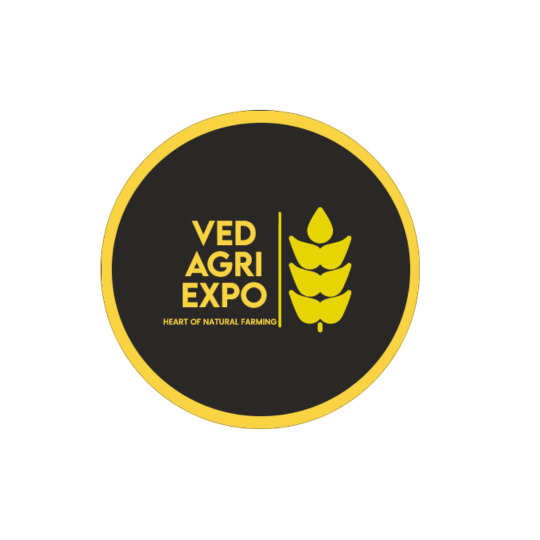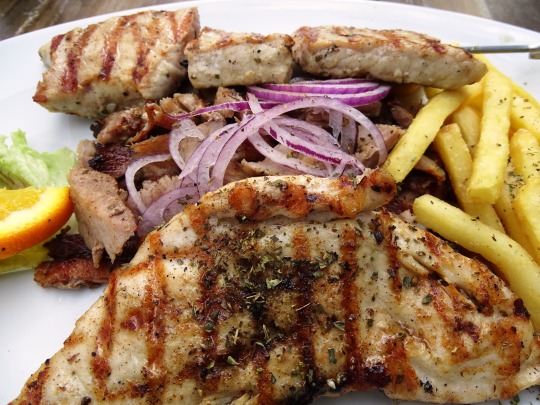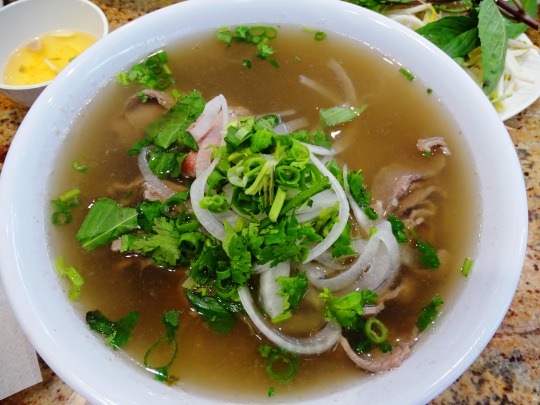#Organic Fruits & Vegetables Exporter
Explore tagged Tumblr posts
Text
#Natural Food#Organic Foods#Supplier#Exporter#Gujarat#India#vegetables#dehydrated fruits#spices#herbs#grains#pulses
1 note
·
View note
Text

#Agricultural Goods#Organic Harvested Products#Supplier#Exporter#India#Farm Products#Maharashtra#Mumbai#Vegetables#Pulses#Honey#Rice#Sugar#Seeds#Grains#Flours#Dry fruits
0 notes
Text

Organic Fruits and Vegetables Exporter in Telangana |Natural Fruits and Vegetables Produce in India
#Organic Fruits and Vegetables Exporter in Telangana#Natural Fruits and Vegetables Produce in India#Healthy Fruits and Vegetables Supply in Hyderabad
0 notes
Text

#Fruits and Vegetables Import in Pune#Organic Fruits Produce#Exporters and Suppliers#India#Nutrient Fruits and Vegetables in Maharashtra#Fresh Fruits and Vegetables
0 notes
Text
Fresh Beef Meat, Sheep Meat, Fresh Goat Meat, Organic Vegetables and Fresh Fruits Exporters and Suppliers in Hyderabad, India
#Fresh Beef Meat#Sheep Meat#Fresh Goat Meat#Organic Vegetables and Fresh Fruits Exporters and Suppliers in Hyderabad#India
0 notes
Text
Fresh Vegetables, Organic Spices, Natural Grains, Fresh Fruits, Raw Cotton, Organic Pulses exporters and suppliers in Rajkot, Gujarat, India

#Fresh Vegetables in gujarat#Fresh Vegetables in india#Organic Spices in gujarat#Organic Spices in india#Natural Grains in gujarat#Natural Grains in india#Fresh Fruits in gujarat#Fresh Fruits in india#Raw Cotton in gujarat#Raw Cotton in india#Organic Pulses exporters and suppliers in Rajkot#Gujarat#India
0 notes
Text
#Agro Products supplier In India#Agriculture Product Exporter#spices company in india#spices export from india#black pepper exporters in india#herb wholesalers#organic herbs suppliers#tea exporters in india#coffee export from india#pulses export from india#dry fruits exporters in india#dry fruits suppliers in india#niger seeds supplier in india#dehydrated vegetables exporters india#export of dehydrated vegetables from india#organic black sesame seeds#black sesame seeds exporters#Mango pulp exporters in india
1 note
·
View note
Text
Today’s food is the product of a highly industrialized, oil-fueled, climate-changing machine built largely on lax environmental standards, loose animal welfare rules, nonexistent antitrust enforcement, and enormous government subsidies to deliver food that is plentiful, cheap, and increasingly harmful to the people who consume it and the rural communities that produce it. And don’t look to organic farms, small farmers, or local food to slowly but surely overtake today’s industrial food juggernaut. Even with the USDA widening its formerly sacred organic standards to include such wildly nonorganic practices as hydroponic fruit and vegetable production, total organic sales in 2022 totaled only $60 billion, an almost invisible drop in food’s $2.4 trillion bucket that year. Small-acreage organic farms—the farms most Americans envision when they think “farmer”—exist in spite of the USDA’s loosening standards, not because of them. American agriculture is shot through with contradictions. For example, every farmer knows that good weather and superb crops usually mean low prices and lean times. Another relates to how farmers dislike, discount, and dismiss “government” but rarely acknowledge it as their moneybags partner. (Uncle Sam sent U.S. farmers over $90 billion from 2018 through 2020.) Ethanol, too, is a massive paradox—some say fraud—that will claim one-third of the 2023 U.S. corn crop, at an estimated value of over $30 billion, even as one-in-four new cars sold in the United States is now electric, and at least seven states have banned the sale of gas-powered cars after 2035. The biggest paradox in American agriculture is Congress’s Farm Bill itself. The soon-to-be-enacted five-year update, the 2023 Farm Bill, will cost an estimated $150 billion per year. Even the common term “Farm Bill” is a misnomer: over three-quarters of the bill’s budget is devoted to SNAP, the nation’s largest food assistance program, which is a poverty relief program that also benefits the food industry. The rest of the budget goes to crop insurance subsidies, federal research grants, green energy initiatives, export subsidies, soil conservation, beginning farmer loans, and hundreds of other never-heard-of giveaways. This part of the budget often helps the very well-off: large agribusinesses. The bill is never imagined as a way to reverse the concentration of control into fewer and fewer hands. Few measures, if any, will slow the demise of rural America. Few, in fact, ever have.
56 notes
·
View notes
Text
Meet three startups, from Morocco, Côte d’Ivoire and the Democratic Republic of Congo, that are harnessing technology to provide simple, viable solutions to energy and food security in Africa.
1. Meier Energy, Morocco’s standard-bearer for energy efficiency
Founded in 2020 by Fouad El Kohen, Meier Energy offers businesses tailor-made solutions to kick-start their energy transition. In just four years, it has established itself as one of the leading start-ups in Morocco and is already exporting outside the country. “It’s a young company dedicated to the development and marketing of energy efficiency, electricity and smart grid equipment,” says founder El Kohen. “Our ambition is to support the ecological transition in both Morocco and Africa.”
2. BioAni, the Ivorian start-up that wants to bid goodbye to chemical fertilisers
BioAni sells organic fertilisers produced using black soldier fly larvae, products that are much cheaper than chemical fertilisers. All that remains is for them to convince farmers to change their habits.
It all began in a garage in Abidjan’s Cocody district with food waste and a few larvae. The insects transform this bio-waste into a particularly effective organic fertiliser. Founder Arthur de Dinechin wanted to get involved in an environmental project in Africa, his adopted continent. After trying his hand at plastic recycling, his thoughts turned to agriculture.
“Here in Côte d’Ivoire, millions of people make their living from farming. There are very few resources in place to help them make a profit from this activity,” he says.
3. GreenBox, the storage solution changing Congolese farmers’ lives
GreenBox enables farmers in the Democratic Republic of Congo to store their fruit and vegetables for three weeks instead of two days, using new technology that gives farmers access to remote control of solar-powered cold rooms. These refrigerators also make it possible to establish the state of ripeness of a stored product and ensure its traceability. Its five installations, spread across as many villages, enable customers’ harvests to be monitored in real-time.
Founder Divin Kouebatouka says: “Storage is centralised for the whole village. The cold room is managed by a cooperative. We make racks available to farmers so that they can store their produce. We can’t rent to everyone, so it’s first come, first served.”
For CFA200 a day (around $0.10), farmers are provided with a locker that can hold 30kg of food. “Small farmers, our core target, can’t buy a cold room. That’s why we’ve introduced daily, weekly and monthly rates. Everyone can choose the subscription that suits them best, which is nothing compared to the value of the products they entrust to us,” says Kouebatouka. In addition to his team of 12 employees, a group of five women is responsible for the daily maintenance and management of the cold rooms.
#solarpunk#solarpunk business#solarpunk business models#solar punk#startup#reculture#africa#jua kali solarpunk#farmers#solar power
5 notes
·
View notes
Text
[Wings of Fire] IceWing Headcanons
Getting closer to the end of the tribe headcanon series. When I'm done with the tribes, I'm going to do continent headcanons, history headcanons, and tribe evolution headcanons.
IceWings had animus magic at one point, lost it and all of their animus-touched objects, and then got the magic back many centuries later. Some suspect that the magic was lost intentionally following one of their animi going insane.
IceWings are the most artistic tribe and are popular for their paintings, carvings, architecture, and music.
IceWings have the weakest immune system due to their lack of exposure to disease in the arctic.
IceWings mate for life and ones who don't are often judged and seen as lesser than.
IceWings have heated greenhouses near the kingdom's capital where they grow fruits and vegetables. These were gifted to them by an ancient animus IceWing.
Animal furs are the Ice Kingdom's leading industry in the economy. They also export narwhal horns and caribou antlers.
IceWings have the most variety when it comes to horn shape. Horn shape is usually genetic and varies most with the regions of the Ice Kingdom.
It is standard in the IceWing tribe for all IceWing dragonets to be raised practicing an artistic or athletic talent. This can be an instrument, form of art, physical talent (formal dancing, swimming, hunting, etc), or singing.
The biggest threat to IceWings in the Ice Kingdom is the environment itself. IceWings have to be cautious about blizzards and avalanches.
The IceWing Royal Family is represented by blue diamonds.
Traditional IceWing music is played with violins, violas, cellos, basses, harps, flutes, clarinets, pianos, chimes, gongs, and horns. IceWing music is typically formal and slow, just the right tempo for waltz-like ballroom dancing. IceWings pride themselves on their compositions and orchestral arrangements.
IceWings can have a range of patterns including gradients, dapples, speckles, feathery markings, and rarely, crystal-like patterns such as opalescence.
Besides the basic white, light grey, and pale blue scales, IceWings can also have purple and pink tinted scales, turquoise-colored scales, yellow-orange scales like a sunset or emperor penguin, and brown-tan scales.
One of the Ice Kingdom's most notable locations other than its palaces is the Crystal Plaza. The Crystal Plaza is a huge marketplace located slightly northwest of the center of the Ice Kingdom where IceWings from all over the kingdom sell and buy products from vendor stands. The Crystal Plaza is similar to the Scorpion Den but does not have any organized crime groups. The Crystal Plaza also resembles the Great Diamond in the old Night Kingdom but the plaza itself is only a small part of the market place which expands down organized rows away from the rhombus-shaped center.
Religious IceWings believe in the great Ice Queen, an ancient IceWing queen who is told to have raised the IceWings to greatness. The story of the Ice Queen describes how she conquered the harsh conditions of the Ice Kingdom and established the Ice Kingdom by leading a war against the Ice Monsters that live there. The Ice Queen trapped the monsters beneath the frozen ground of the kingdom, keeping them from being able to hurt her tribe. The Ice Queen has a large statue carved of ice dedicated to her in the Crystal Plaza that was created by one of the IceWings' first animi so that dragons can pay their respects to her. It is believed that the Ice Queen's soul exists as the northern lights and that she protects all dragons who follow the Principles of Eminence, a list of rules that were carved in ice, supposedly by the Ice Queen herself but they appear to be too recent to have been her.
72 notes
·
View notes
Text
#Agricultural Goods#Organic Harvested Products#Supplier#Exporter#India#Farm Products#Maharashtra#Mumbai#Vegetables#Pulses#Honey#Rice#Sugar#Seeds#Grains#Flours#Dry fruits
1 note
·
View note
Text
Certified Organic Fruits & Vegetables Exporter in Nashik Maharashtra
Regen Exim is a leading certified organic fruits & vegetables exporter in Nashik Maharashtra. With a strong commitment to quality and sustainability, we have become a trusted organic fruits & vegetable wholesaler and trader in the region.
High-Quality Organic Produce
At Regen Exim, we ensure that all our fruits and vegetables are organically grown without the use of harmful chemicals and pesticides. Our produce is certified organic, guaranteeing that it meets stringent quality standards. We believe in providing our customers with the healthiest and freshest products available.
Wide Range of Organic Fruits and Vegetables
We offer a diverse selection of organic fruits and vegetables to cater to the varying needs of our clients. From juicy mangoes and crisp apples to fresh leafy greens and vibrant carrots, our product range is extensive. This variety allows us to meet the demands of both domestic and international markets, solidifying our position as a premier organic fruits & vegetable wholesaler.
Commitment to Sustainability
Regen Exim is dedicated to sustainable farming practices. We work closely with local farmers to promote organic farming methods that are environmentally friendly and economically viable. Our commitment to sustainability not only ensures the well-being of our planet but also supports the livelihoods of our farmers.
Competitive Pricing
We believe that high-quality organic produce should be accessible to everyone. At Regen Exim, we offer competitive pricing on all our products without compromising on quality. Our efficient supply chain management and direct sourcing from farmers allow us to provide value-for-money products, making us a preferred organic fruits & vegetable trader.
Reliable Supply Chain
Our robust supply chain ensures that our clients receive their orders on time, every time. With a well-established network of farmers, suppliers, and logistics partners, we can handle bulk orders and deliver them efficiently. This reliability has earned us a reputation as a dependable organic fruits & vegetable wholesaler in Nashik and beyond.
Focus on Customer Satisfaction
Customer satisfaction is our top priority at Regen Exim. We strive to provide excellent service and top-quality products to meet the needs of our clients. Our dedicated customer support team is always ready to assist with inquiries, orders, and any other requirements, ensuring a smooth and hassle-free experience.
Conclusion
In conclusion, Regen Exim is your go-to source for certified organic fruits and vegetables in Nashik, Maharashtra. As a trusted organic fruits & vegetable wholesaler and trader, we are committed to providing the highest quality products, promoting sustainable farming practices, and ensuring customer satisfaction. Partner with us to enjoy the best organic produce that Maharashtra has to offer.
0 notes
Text
#Organic Fruits and Vegetables Exporter in Telangana#Natural Fruits and Vegetables Produce in India#Healthy Fruits and Vegetables Supply in Hyderabad
0 notes
Text
#Fruits and Vegetables Import in Pune#Organic Fruits Produce#Exporters and Suppliers#Vegetables in Maharashtra#India#Nutrient-Rich Produce
0 notes
Text

















National Onion Day
Today, farmers in the United States are collecting millions of onions. They will be heading for store shelves to provide families with the fresh, nutritional, tasty power to improve meals and boost the body’s immunity. Onions have numerous advantages, such as enhancing meals with a variety of flavors. According to recent research, consuming onions also helps the body fight colorectal cancer and breast cancer, as well as heart disease and diabetes.
National Onion Day commemorates the incorporation of the National Onion Association in 1913. The organization was created to protect the interests of America’s onion growers, and onions remain their business to this day. Today, the group represents over 500 onion producers, shippers, packers, and suppliers across the country.
History of National Onion Day
In June 2022, the National Onion Association established National Onion Day to commemorate the organization’s 53rd anniversary. They officially incorporated on June 27, 1913, in Ohio, and represent almost 500 onion farmers, shippers, packers, and allied members across the U.S.
Onions are one of the world’s oldest cultivated vegetables, having originated in Central Asia and spread around the world. Some researchers believe the onion has been cultivated for at least 5,000 years. Onions were possibly eaten for thousands of years and cultivated all over the world at the same time, since they grew wild in different locations.
We rely on the onion to improve the flavor of our savory meals, whether we use a sweet, white, red, or ever-popular yellow onion. They complement meats and salads, making the versatile onion a culinary powerhouse. It’s the needed seasoning alongside our salt and pepper, whether added to eggs or pickled. While the onion is low in calories, it is also high in vitamin C and antioxidants, and can increase your dietary fiber and vitamin B6 intake. Unlike many other low-calorie ingredients, onions provide a high nutritional content without compromising flavor. And it makes no difference what you do to it; pickled or raw, caramelized, sauteed, or pureed — the onion adds a lot of flavor to a dish. With so many types to choose from, onions present numerous opportunities to reap the benefits.
National Onion Day timeline
3500 B.C. The Onion is First Traced in Egypt
The history of the onion can be traced back to this period, with a Sumerian document describing someone being in awe of the city governor’s onion garden.
1500 B.C. Ancient Egypt Worships Onions
To those who bury onions alongside their pharaohs, onions are a sign of eternity.
1913 National Onion Association Is Founded
On June 2, the National Onion Association is formally incorporated in Ohio.
2019 National Onion Day is First Celebrated
The National Onion Association establishes National Onion Day on June 27, to honor onion producers.
National Onion Day FAQs
Is an onion a vegetable or a fruit?
The vegetables are classified based on the edible part of the plant: leaves (like lettuce), roots (like carrot), bulbs (such as onions), and many others. Alternatively, fruits such as tomatoes and seeds such as peas are commonly referred to as vegetables.
Which country is the largest onion exporter?
According to FY18 data, China appears to be the top onion producer, but the Netherlands is the largest onion exporter.
Do onions aid in the treatment of infections?
Onions were worshiped for their medicinal powers by various civilizations. They have anti-inflammatory properties, relieve joint pain, treat ear infections, work as an antibiotic, and are an excellent expectorant for loosening up thick phlegm.
National Onion Day Activities
Add fresh onion to your favorite recipe
Learn how to grow onions in your backyard
Share the celebration on social media
For a flavor boost, be sure to add some onion in there. No matter how you slice it, onion pulls together some of the greatest flavors! Tell us how you like to cook your onions!
Gardening is fun! Furthermore, if you can cultivate some veggies like onions in your backyard, you can reduce the cost of your monthly groceries by harvesting them yourself.
Be sure to spread the word about National Onion Day by using the hashtag #NationalOnionDay on social media. Also, don’t forget to brag about your onion recipe or how you harvested your own onions.
5 Interesting Facts About Onion
They’ve been around for thousands of years
Sulfuric acid
Onions were worshiped by Ancient Egyptians
The biggest onion ever
The Big Onion
Onions have been present for thousands of years and, around 3,500 B.C, onions were harvested for the first time.
The reason you become teary-eyed when cutting onions is because of the sulfuric acid they contain.
They claimed that the spherical shape and concentric circles represented eternity — onions were used to cover the tombs of their monarchs and were important in ritual burials.
According to ‘The Guinness Book of World Records’, the biggest onion ever was cultivated by Peter Glazebrook, a British farmer, who grew a massive onion in 2011 that weighed just under 18 pounds.
Before it was known as the Big Apple, New York was known as the Big Onion, because it was a place where you could peel layer after layer without touching the center, kind of like an onion.
Why We Love National Onion Day
It encourages cultivation
It promotes culinary creativity
It boosts the immune system
Onions are an important, and healthy part of our diet. Why not grow and cultivate your own in your backyard?
Who would have thought onions, known for making us cry, could be so sweet and delectable with some creativity? These days, almost all culinary innovations use onion for a unique flavor.
Onions are rich in prebiotics. This helps to increase friendly bacteria in your guy, which helps to build immunity against viruses.
Source
#vacation#Jaime-Style with cheese & sauce Burrito#USA#food#Chow Line#Cowboy Burger#Chili Burger#Texas Roadhouse Chili#steak with mushrooms#Onion Rings#Pho Tai#Beef Black Pepper#Crispy Rice Noodle Tower#Pavla Plate#Green Chile Burger#National Onion Day#27 food#travel#original photography#restaurant#Canada#Fire Jumper Burger#Roast beef with remoulade & fried onions Smörrebröd#Greek Pizza
12 notes
·
View notes
Text
Dolomite Powder: A Natural Help for Farms
Dolomite powder, a naturally occurring mineral, has a wide range of uses in agricultural practices. It is a valuable resource for farmers looking to improve soil quality and promote healthier crops. Derived from limestone, dolomite powder is rich in calcium and magnesium, two essential nutrients for plants. This article explores how dolomite powder can benefit farms and the role of suppliers and manufacturers in making it accessible to farmers.

Benefits of Dolomite Powder for Soil Health
One of the most important uses of dolomite powder in agriculture is its ability to improve soil health. Soil quality plays a crucial role in the growth of crops, and dolomite powder helps in balancing the pH levels of the soil. When soil is too acidic, it can hinder the availability of vital nutrients to plants. Dolomite powder acts as a natural soil conditioner by neutralizing excess acidity, making the soil more suitable for plant growth.
In addition to adjusting pH levels, dolomite powder enriches the soil with essential minerals. The calcium in dolomite helps strengthen plant cell walls, leading to stronger, healthier crops. Magnesium, on the other hand, is important for photosynthesis, helping plants convert sunlight into energy. This dual benefit of calcium and magnesium makes dolomite powder an excellent addition to the soil, contributing to better crop yields.
Dolomite Powder for Improving Crop Quality
Dolomite powder not only enhances soil health but also improves the overall quality of crops. By providing essential nutrients like calcium and magnesium, it helps plants grow stronger and more resilient. For crops like vegetables, fruits, and flowers, dolomite powder can lead to better growth, larger yields, and improved resistance to diseases.
In many cases, dolomite powder is used to treat calcium deficiencies in plants. Calcium is vital for maintaining the integrity of plant cell walls, which is especially important in fruit development. Without adequate calcium, fruits may suffer from disorders such as blossom end rot. By adding dolomite powder to the soil, farmers can ensure that their crops have enough calcium to avoid such issues.
Use of Dolomite Powder in Organic Farming
Organic farming practices focus on maintaining soil fertility and promoting sustainable agricultural methods. Dolomite powder is a popular choice for organic farmers due to its natural composition and minimal impact on the environment. Unlike synthetic fertilizers, dolomite powder is a natural mineral that can be safely used to enhance soil quality without harmful chemicals.
The use of dolomite powder in organic farming also helps reduce the need for chemical inputs. By balancing soil acidity and providing essential nutrients, it reduces the reliance on synthetic fertilizers, making it an environmentally friendly option for farmers who prioritize sustainability.
How Dolomite Powder is Sourced and Supplied
Dolomite powder is widely available in many parts of India, where it is produced by manufacturers who specialize in processing the mineral into fine powder form. These manufacturers carefully process raw dolomite to ensure its quality and effectiveness for agricultural use. The powder is then distributed to farms and agricultural suppliers across the country, making it accessible to farmers in both rural and urban areas.
For farmers looking to purchase dolomite powder, it is important to choose reliable suppliers who can provide high-quality products. Many exporters and manufacturers in India offer dolomite powder in large quantities, ensuring that farmers can access this valuable resource when needed. Working with trusted dolomite powder manufacturers ensures that the product is of the highest standard, allowing farmers to make the most of its benefits.
Conclusion
Dolomite powder is a natural, effective solution for improving soil health and enhancing crop quality. Whether used to adjust soil pH, provide essential nutrients, or support organic farming practices, dolomite powder offers numerous benefits for farmers. With the support of reliable dolomite powder exporter in India, farmers can access this valuable product to boost their farm productivity and sustainability.
0 notes